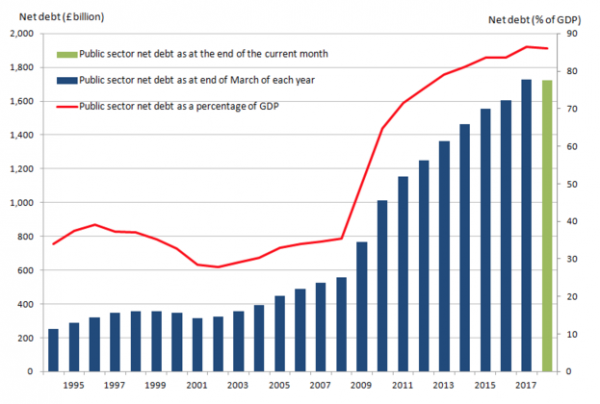Dec 12th 2019, 17:59
Blog 12th December 2019
In this week’s blog, I refer to: General Election 2019; Conservatives; Labour; Liberal-Democrats; Housing; Shelter; Baroness Warsi; Ed Miliband; Local Government Finance; Local Government Chronicle; London School of Economics; Clement Attlee; European Union; Brexit; European Parliament; Gender Equality; Domestic Violence; Scotland; Service Charges; Seminars & Training.
The United Kingdom General Election is being held today. I have published a briefing paper that looks at the election manifestos of the Conservative, Labour and Liberal-Democrat parties and their proposals for housing. It also summarises the reactions in the sector and provides some commentary. The outcome of the election will clearly have significant implications.

The United Kingdom Parliament. There is a General Election today.
It is generally accepted that Britain is facing a ‘housing crisis’. This is described by ‘Shelter’ as follows:
“The quiet misery of a decade ago has grown into the loud and visible emergency of today. On almost every measure our housing system is breaking. More than 320,000 people are now homeless, including tens of thousands of children being brought up in temporary and emergency accommodation. At the sharpest end, the Office of National Statistics tell us that 726 of our fellow citizens died while homeless last year.”
Early in 2019, Baroness Sayeeda Warsi (Conservative) and Ed Miliband MP (Labour) joined other commissioners in publishing Shelter’s commission on the future of social housing. Published at a time when the country was building only 6,000 new social homes a year, its call for three million new social homes over the next twenty years represented a major challenge to the prevailing consensus on housing policy. But as Sayeeda Warsi said at the launch, when you look at the evidence you realise how wrong the country has got it. This election is clearly an opportunity for the political parties to re-evaluate their approaches to housing.
The parties are offering different visions for housing. For the Conservatives, it is all about arresting the decline in home ownership. For Labour, it is all about building more new homes – especially affordable homes – through councils and housing associations and funded mainly by increased central government grants. For the Liberal-Democrats it is also about building more homes but with an emphasis on environmental sustainability.
To view or download a copy of the briefing paper, please click here.
The three main United Kingdom parties are also making significantly different proposals for Local Government.
Generally, I have found the General Election campaigns rather uninspiring. This perception is obviously shared by Nick Golding, the Editor of the ‘Local Government Chronicle’ who writes of:
“The paucity of talent among the current generation of national politicians. There are few giants on either the government or opposition front benches. Both have proven themselves inadequate when it comes to devising coherent responses to our nation’s problems. Far from being pre-requisites for the job, real world experience, attention to detail, an ability to prioritise and the curiosity to analyse the likely long-term implications of one’s policies now seem barriers to senior office. Neither the Conservatives nor Labour deserve general election victory.”
Politicians are also abandoning any pretence that they are financially responsible. As Tony Travers, Director of the London School of Economics writes in the Local Government Chronicle:
“It is clear that both the Conservatives and Labour have accepted that a rising public sector deficit is a price worth paying for votes in the 2019 general election. Austerity is to be replaced with a political spending splurge.
“Increasing public spending will take place against the backdrop of economic growth well below previous trends… With spending rising, promises of tax cuts and stagnating growth, government borrowing will rise…. The Treasury has few fiscal or monetary weapons left to fight changing economic circumstances. The Chancellor and his shadow are effectively keeping their fingers crossed and hoping for the best.”
The Institute for Fiscal Studies has also concluded that the financial plans of the Conservative and Labour parties are not credible.

Graph showing the increase in UK government borrowing since 2008.
I have been reading a bit about Labour Party history recently and came across an interesting speech made by Clement Attlee in 1939 in which he revealed himself as an early advocate of the European Union and said that:
“Europe must federate or perish.”
Mary Honeyball, the former Vice-Chair of the European Parliament’s women’s rights and gender equality committee wrote an interesting piece in the ‘New European’ recently entitled ‘Brexit’s inbuilt gender imbalance’ in which she wrote:
“Brexit poses several risks to domestic violence victims. The United Kingdom is still refusing to ratify the Istanbul Convention to combat such abuse, while the rates of female-targeted violence in the United Kingdom are among the worst in Europe. Victims will, of course, lose the protection currently afforded by the European Union Victim’s Directive. They will also lose the ability to seek shelter under the European Protection Order.”
Last week we launched our seminar ‘All You Want to Know about Scottish Housing Association Finance’ that will be held in Edinburgh in April 2020. This is a useful introduction and overview of this important subject. For more information, or to make a booking, please click here.
Our first seminar of 2020 will be on ‘All You Want to Know about Service Charges in Social Housing’. This seminar is a very useful introduction and overview to this important subject. For further information or to make a booking, please click here.
We will soon be publishing the 2020 edition of ‘All You Want to Know about Service Charges in Social Housing’. This is a very useful 100-page guide to this important subject. For further information or to order a copy, please click here.